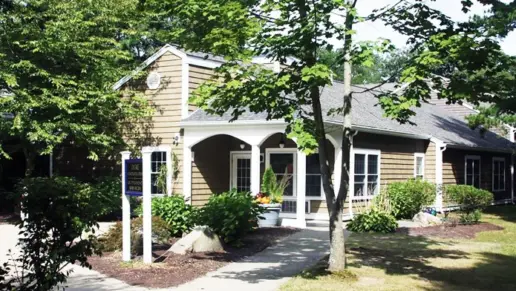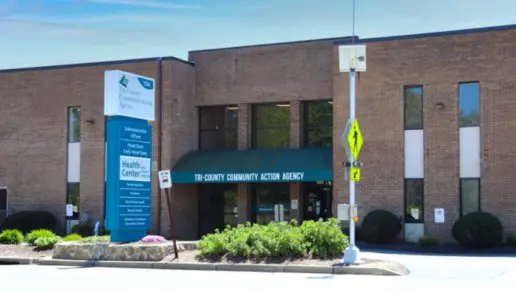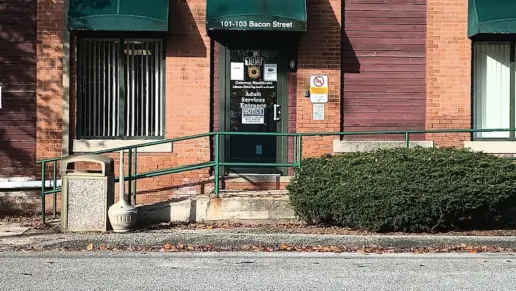The staff is very helpful; they are always smiling, and they make you feel very comfortable with all the procedures! Thanks for everything
About CODAC Behavioral Healthcare – East Bay
CODAC Behavioral Healthcare is the oldest non-profit outpatient substance abuse treatment center in Rhode Island. They have seven locations and also work with the Rhode Island Department of Corrections. Their East Providence location offers counseling, medication-assisted treatment, ear acupuncture and therapeutic massage.
At CODAC, they offer several medication options for their MAT. Methadone, suboxone, and naltrexone are available. Your provider and you will discuss the options and choose the right one for your needs. By law, counseling has to be paired with these medications. You’ll work with licensed mental health professionals in both private and group sessions to progress on your recovery.
The intensive outpatient program (IOP) at CODAC ranges from 4-6 weeks. It includes individual and group counseling sessions equalling at least 9 hours each week.
Their general outpatient program is similar to IOP except the number of treatment hours per week can be less. This route is ideal for those who are further along on their recovery and don’t need as much structure.
I like that CODAC focuses on the value of lifestyle benefits you’ll get from being free of substances. Your family member is encouraged to be part of your treatment and recovery journey.
Once you make contact with CODAC, you’ll be on a treatment track within 24-48 hours.
CODAC accepts Medicaid and Ritecare plus most commercial insurance plans including United Healthcare, Neighborhood Health Plans, Tufts and Blue Cross.
Latest Reviews
Rehab Score
Gallery
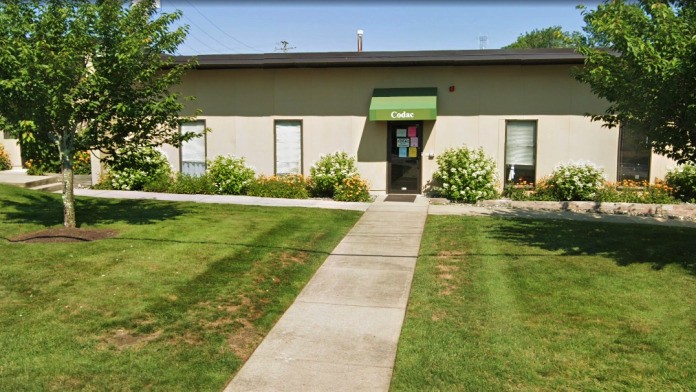
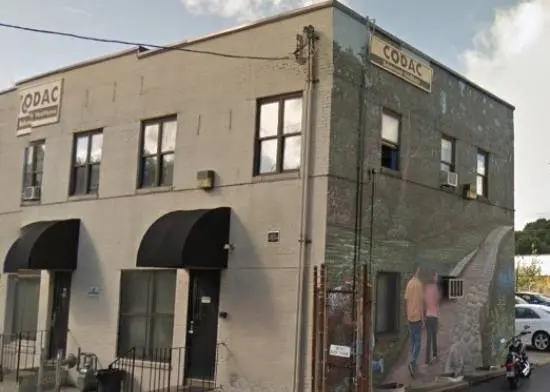
Location
Accepted Insurance


Other Forms of Payment
Medicaid is a state based program that helps lower-income individuals and families pay for healthcare. Medicaid covers addiction treatment so those enrolled can use their coverage to pay for rehab. When a program accepts Medicaid the client often pays very little or nothing out of their own pocket.
Private insurance refers to any kind of healthcare coverage that isn't from the state or federal government. This includes individual and family plans offered by an employer or purchased from the Insurance Marketplace. Every plan will have different requirements and out of pocket costs so be sure to get the full details before you start treatment.
Self-pay involves paying for treatment out of your own pocket. You can use savings or credit, get a personal loan, or receive help from family and friends to fund your treatment. If you don't have insurance or your insurance plan doesn't cover a specific program, self-pay can help ensure you still get the care you need.
Financial aid can take many forms. Centers may have grants or scholarships available to clients who meet eligibility requirements. Programs that receive SAMHSA grants may have financial aid available for those who need treatment as well. Grants and scholarships can help you pai for treatment without having to repay.
Military members, veterans, and eligible dependents have access to specific insurance programs that help them get the care they need. TRICARE and VA insurance can help you access low cost or no cost addiction and mental health treatment. Programs that accept military insurance often have targeted treatment focused on the unique challenges military members, veterans, and their families face.
Addiction Treatments
Levels of Care
Treatments
The goal of treatment for alcoholism is abstinence. Those with poor social support, poor motivation, or psychiatric disorders tend to relapse within a few years of treatment. For these people, success is measured by longer periods of abstinence, reduced use of alcohol, better health, and improved social functioning. Recovery and Maintenance are usually based on 12 step programs and AA meetings.
During drug rehab in Rhode Island, you'll participate in a variety of therapeutic interventions designed to help you break free from addiction. Common methods include cognitive behavioral therapy, music and art therapy, 12-step support, and nutrition/exercise.
A combined mental health and substance abuse rehab has the staff and resources available to handle individuals with both mental health and substance abuse issues. It can be challenging to determine where a specific symptom stems from (a mental health issue or an issue related to substance abuse), so mental health and substance abuse professionals are helpful in detangling symptoms and keeping treatment on track.
Opioid rehabs specialize in supporting those recovering from opioid addiction. They treat those suffering from addiction to illegal opioids like heroin, as well as prescription drugs like oxycodone. These centers typically combine both physical as well as mental and emotional support to help stop addiction. Physical support often includes medical detox and subsequent medical support (including medication), and mental support includes in-depth therapy to address the underlying causes of addiction.
Programs


Clinical Services
Group therapy is any therapeutic work that happens in a group (not one-on-one). There are a number of different group therapy modalities, including support groups, experiential therapy, psycho-education, and more. Group therapy involves treatment as well as processing interaction between group members.
Staff & Accreditations
Staff
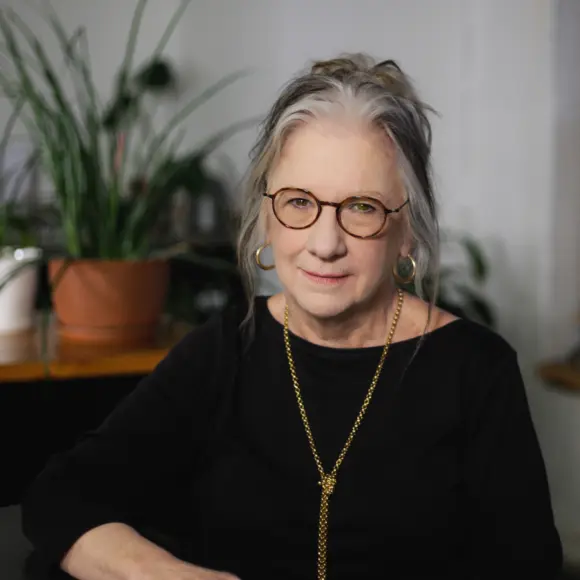
President & CEO
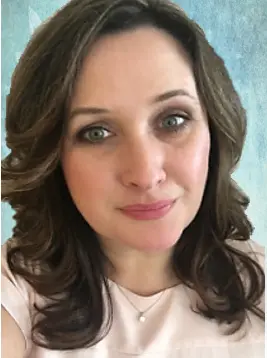
CFO
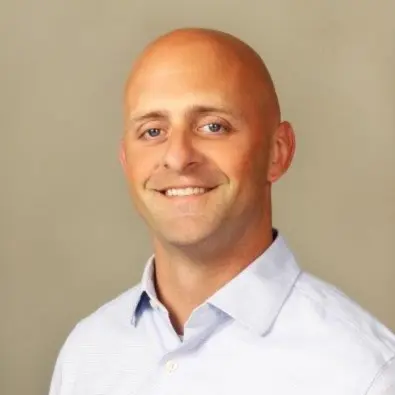
COO
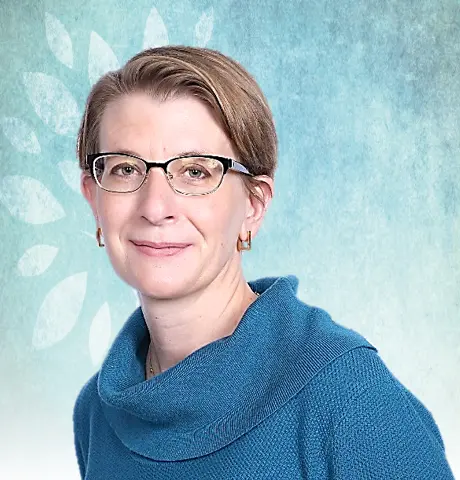
Chief Medical Officer

Program Director
Accreditations

The Substance Abuse and Mental Health Services Administration (SAMHSA) is a branch of the U.S. Department of Health and Human Services. Established in 1992 by congress, SAMHSA's mission is to reduce the impact of substance abuse and mental illness on American's communities.
SAMHSA Listed: Yes
Contact Information
850 Waterman Avenue
East Providence, RI 02914









